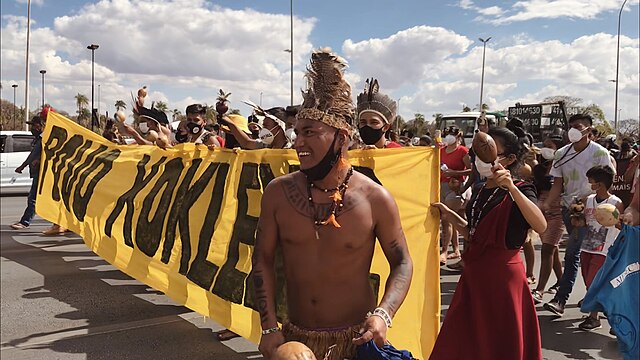The Facts
On Thursday, Brazil's Supreme Court ruled in favor of restoring the Xokleng community's rights to their ancestral lands.
In the lawsuit, the state of Santa Catarina had argued that the Indigenous group in the area only had rights to land it physically occupied before the Brazilian constitution was announced in 1988 — a legal thesis called "marco temporal."
The Spin
Narrative A
The Supreme Court's landmark decision to recognize Indigenous lands as a protected area will resolve hundreds of pending land recognition claims. As the justices gave the lawsuit a "general repercussion" status, the ruling will serve as a precedent for all instances of justice involving Indigenous groups. The battle is won, but not the war: The fight for Indigenous territories and rights in Brazil continues.
Narrative B
While Indigenous communities must be protected, industries vital to the nation must also be considered. These decisions will affect private farms and tobacco growers, which will have a domino effect on timber, mining, and agriculture — and the nation's economy as a whole. Greater efforts must be made to bridge the difference between Indigenous communities and agribusiness.
